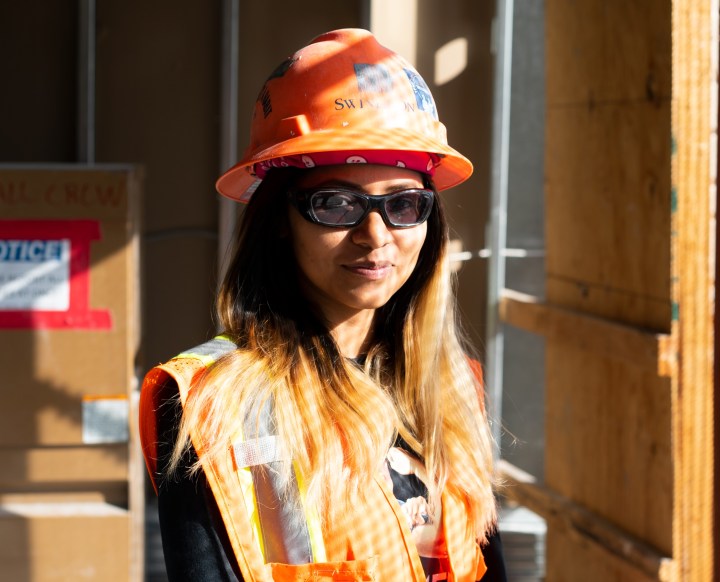
We talked to 10 people who roughly represent the 164 million-person U.S. labor force. Ten stories, one question: “Is the economy working for you?” Meet Rocio.
- Name: Rocio Montano
- Occupation: Drywall apprentice, Swinerton
- Based in: Los Angeles, California
- Daily commute: About 10-15 minutes by car in the morning and 15-20 minutes in the afternoon
- Age: 24
The numbers on Rocio
- The Bureau of Labor Statistics would categorize Rocio’s job most broadly as “natural resources, construction and maintenance occupations.” One in 10 workers in the U.S. labor force work jobs in that category. It also includes agricultural workers, carpet installers, aircraft mechanics, shoemakers, animal breeders, locksmiths and a wide range of other workers.
- Like nearly 13% of U.S. workers, she’s under the age of 25.
Rocio was born and raised in Los Angeles, California. Now she’s helping to build the city she grew up in. After receiving an associate’s degree in carpentry from Los Angeles Trade Technical college, she got a job with Swinerton, a commercial construction company. At age 24, she’s relatively new to the industry but is cutting her teeth on the drywall team of a 35-story condo project downtown.
Women remain vastly outnumbered by men in construction — they make up just 10% of people employed in the industry. But there is plenty of work right now for someone with skills like Rocio’s. Facing a shortage of qualified workers in cities across the country, some companies (including Swinerton) have taken steps to educate more women on careers in construction.
What kind of training did you have to do to get the job you have now?
I earned an associate’s degree in carpentry from Los Angeles Trade-Technical College. I also receive training through my union (Southwest Regional Council of Carpenters) and a lot of on-the-job education.
What’s the one tool you can’t do your job without?
If I had to name one, definitely a tape measure.
What’s the hardest part about your job that nobody knows?
The amount of thinking you have to do to figure things out and make them work. When I heard about construction workers prior to entering the field, I heard stuff like “It’s easy, you just have to be strong” or “It’s a man’s job because of the muscle it requires.” No one talked about how much you use your brain’s muscle throughout the day.
What was your first job?
My first job was as a clerk in my neighborhood’s mom and pop hardware store in Koreatown.
Click the media players below to hear how Rocio’s story evolved:
There’s a lot happening in the world. Through it all, Marketplace is here for you.
You rely on Marketplace to break down the world’s events and tell you how it affects you in a fact-based, approachable way. We rely on your financial support to keep making that possible.
Your donation today powers the independent journalism that you rely on. For just $5/month, you can help sustain Marketplace so we can keep reporting on the things that matter to you.


















